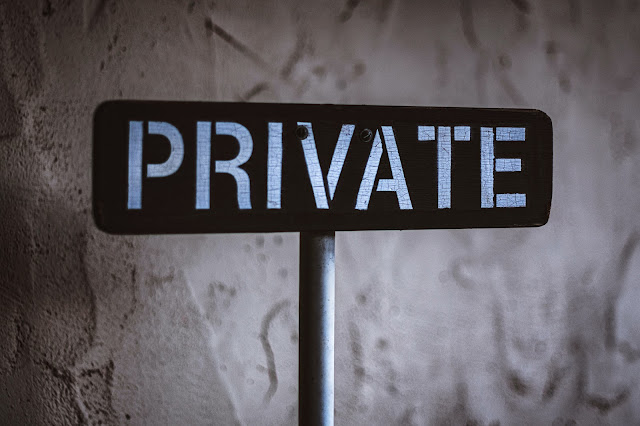In today's digitally connected world, our privacy is constantly under threat. With the proliferation of online platforms, smart devices, and the sharing of personal information, maintaining our privacy has become a growing concern. However, there are ways to safeguard your privacy effectively. In this blog post, we'll explore the secrets to securing your privacy and regaining control over your personal information.
Understanding the Importance of Privacy
Privacy is a fundamental human right and plays a critical role in our lives. It's the ability to control the disclosure of our personal information and to protect our identities and data. Maintaining privacy is essential for several reasons:
- Protection Against Identity Theft: Your personal information, if compromised, can be used to steal your identity. This can result in financial loss, legal issues, and damage to your reputation.
- Prevention of Data Breaches: The loss of sensitive information, such as financial records or medical history, can have serious consequences. Cybercriminals often target personal data for various malicious purposes.
- Preservation of Reputation: Online reputation is crucial in today's digital age. Negative information or compromising content can damage your personal and professional image.
- Freedom of Expression: Privacy allows individuals to express themselves freely without fear of repercussions or judgment.
Secrets to Safeguarding Your Privacy
- Strong, Unique Passwords: Use strong, unique passwords for all your online accounts. Avoid common passwords and never reuse passwords across multiple platforms. Consider using a password manager to generate and store complex passwords securely.
- Two-Factor Authentication (2FA): Enable 2FA whenever possible. This additional layer of security requires a second form of verification, such as a code sent to your mobile device, to access your accounts.
- Regularly Update Software: Keep your operating system, applications, and antivirus software up to date. Updates often include security patches to protect against vulnerabilities.
- Be Cautious with Personal Information: Avoid sharing unnecessary personal information online. Review privacy settings on social media and limit the amount of personal data you disclose.
- Use Encryption: Ensure your internet connection is secure by using HTTPS websites and virtual private networks (VPNs) to encrypt your online activities.
- Beware of Phishing: Be cautious when clicking on links or downloading attachments in emails or messages. Phishing attempts often disguise themselves as legitimate communications.
- Review App Permissions: Regularly review the permissions granted to apps on your devices. Some apps may have access to more information than necessary.
- Secure Your Wi-Fi Network: Use strong encryption and a unique password for your Wi-Fi network to prevent unauthorized access. Also, consider changing the default login credentials for your router.
- Limit Location Tracking: Be mindful of location tracking on your devices. Only allow apps to access your location when it's necessary.
- Review Privacy Policies: When signing up for new services or apps, read and understand their privacy policies. Know how your data will be used and shared.
- Secure Your Devices: Use screen locks, PINs, or biometric authentication methods to secure your devices. Enable remote tracking and wiping in case of theft or loss.
- Regularly Monitor Accounts: Routinely check your financial and online accounts for any suspicious activity. Early detection can help prevent further damage.
- Educate Yourself: Stay informed about the latest privacy threats and best practices. Awareness is key to protecting your personal information.
- Protect Personal Documents: Store physical documents, such as passports and Social Security cards, in a secure location. Consider investing in a small fireproof safe.
- Use Encrypted Messaging Apps: For sensitive communications, opt for encrypted messaging apps that ensure your messages are secure and private.
- Limit Data Sharing: Be cautious when sharing personal information with third parties, both online and offline. Share only what is necessary and always ask about data protection practices.
- Regularly Clear Cookies and Browsing History: Clear your browser's cookies and browsing history to prevent tracking and profiling by websites and advertisers.
- Anonymity Tools: Consider using anonymity tools like Tor for private browsing and use a search engine that doesn't track your searches.
- Secure Your Social Media: Review and update your social media privacy settings. Limit who can see your posts, photos, and personal information.
- Regular Backups: Regularly back up your data to prevent loss from hardware failures or ransomware attacks.
The Right to Privacy
While the above-mentioned steps are essential for securing your privacy, it is equally important to ensure your physical safety and privacy. For instance, investing in high-quality exterior doors in Salt Lake City can significantly enhance the security of your home. There are various providers offering sturdy and aesthetically pleasing exterior doors. These doors not only fortify your home against intrusion but also provide a much-needed privacy barrier, complementing your digital privacy efforts.
In conclusion, safeguarding your privacy in today's digital age is crucial for protecting yourself from various threats. By following the tips mentioned above and becoming digitally literate, you can take control of your online presence and ensure the protection of your personal information. Additionally, taking steps to secure your physical space can also contribute to overall privacy and security. Remember, privacy is a fundamental human

